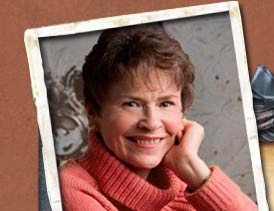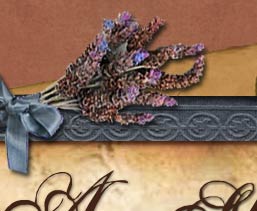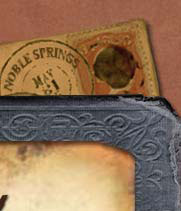A visit to Gettysburg several years ago left me wondering how the women who lived there returned to "normal" life in the aftermath of that horrific battle. I could imagine the sights and smells they learned to endure, but I longed to know more of the details of their lives.
Jocelyn Green's masterful Widow of Gettysburg answered my questions and filled in the many gaps in my knowledge of the battle of Gettysburg. The novel's main character, Liberty Holloway, is in the process of turning a home she inherited into an inn when soldiers from both sides of the conflict converge on Gettysburg.
Using Liberty as representative of all of the women who lived through the death and destruction that followed, Widow of Gettysburg skillfully brings to life soldiers, former slaves, doctors, and the countless women who survived and endured those times.
Green's novel is gripping in its intensity. Realism is woven through every line. (Some of the realistic content may not be suitable for younger readers.) I found myself slowing down my reading just to make the story last longer. I highly recommend Widow of Gettysburg to lovers of history as well as to readers who are seeking a mesmerizing story.
My thanks to the author and Moody/River North for my review copy.
Wednesday, June 19, 2013
Monday, June 10, 2013
KATHLEEN MAHER'S MY GUEST TODAY
 Today I'm welcoming Kathleen Maher to my blog to share with us the historical background of her Civil War-era novella, Bachelor Buttons. Bachelor Buttons released on May 1 as part of a Civil War sesquicentennial collection by Helping Hands Press. Kathleen won the 2012 ACFW Genesis contest, and has finaled in several others since 2009. Represented by Terry Burns of Hartline Literary Agency, Kathleen blogs about New York State history. http://kathleenlmaher.blogspot.com/
Today I'm welcoming Kathleen Maher to my blog to share with us the historical background of her Civil War-era novella, Bachelor Buttons. Bachelor Buttons released on May 1 as part of a Civil War sesquicentennial collection by Helping Hands Press. Kathleen won the 2012 ACFW Genesis contest, and has finaled in several others since 2009. Represented by Terry Burns of Hartline Literary Agency, Kathleen blogs about New York State history. http://kathleenlmaher.blogspot.com/She and her husband live in a 100-year-old farmhouse in upstate NY with their three children, two Newfoundland dogs and a tuxedo cat.
I asked Kathleen what inspired her to write Bachelor Buttons, and she wowed me with this fascinating background information.
"My novella Bachelor Buttons features the Irish in Manhattan at the time of the Civil War Draft Riots. Provoked by Lincoln's Enrollment Act, the immigrants took to the streets in violent protest. They felt singled out by an executive order that exempted the rich from compulsory service because they could purchase a stand-in to fight for them. The draft also exempted freed blacks because they weren’t yet citizens.
In response, the Irish set fire to the Provost Marshal's office where the draft was being conducted on July 13, and attacked homes and businesses throughout Manhattan in the next three days, including pro-Lincoln papers the Times, the Herald, and Horace Greeley's Tribune.
But why would the Irish feel so desperate that they would resort to violence? There is no excuse for hate crimes such as were committed during this riot, mostly against freedmen. There were a dozen lynchings and a black orphanage was razed. Nothing can justify the thug tactics of an inebriated mob. These are blights on history, and to the character of a struggling group of immigrant class Irish in particular. And while much atonement would be needed, it is also clear that not all Irish engaged in this villainous behavior.
Some emerged as heroes, such as firefighters and policemen who were also mostly Irish, who struggled desperately to restore order. In at least one instance, a neighborhood rallied in defense of one of its black citizens to keep the mob from destruction and murder.
And yet, caught in the middle between savagery and heroism were a majority of disenfranchised Irish whose political leanings left them outraged at executive overreach and the trampling of the constitution. Copperheads loyal to the Union but opposed to the Lincoln administration, they cited the suspension of the Writ of Habeus Corpus as evidence that rights were eroding in their new country.
Based on suspicion alone, a man could be held as a traitor or spy indefinitely, with no evidence to convict him. These wartime attacks on personal liberty left many in a state of panic and mistrust, desperate for an expression to voice their disagreement. In fact, Manhattan had a groundswell of support at the onset of the war for secession from the Union to preserve free trade with the South and its business interests. Jobs were at stake. Livelihoods already precarious were put in peril.
The makings of civil unrest had been laid. When the wick of Lincoln’s Enrollment Act had been lit, a powder keg of protest ensued in the draft riots of 1863."
Kathleen has graciously offered to host a drawing for a free ebook copy of her novella. Please leave a comment with your email address included for a chance to win this gripping story. The drawing will close at midnight on June 17th--one week from today.
Here's a photo of Bachelor Buttons' gorgeous cover, just to whet your appetite!
Subscribe to:
Comments (Atom)









.jpg)




